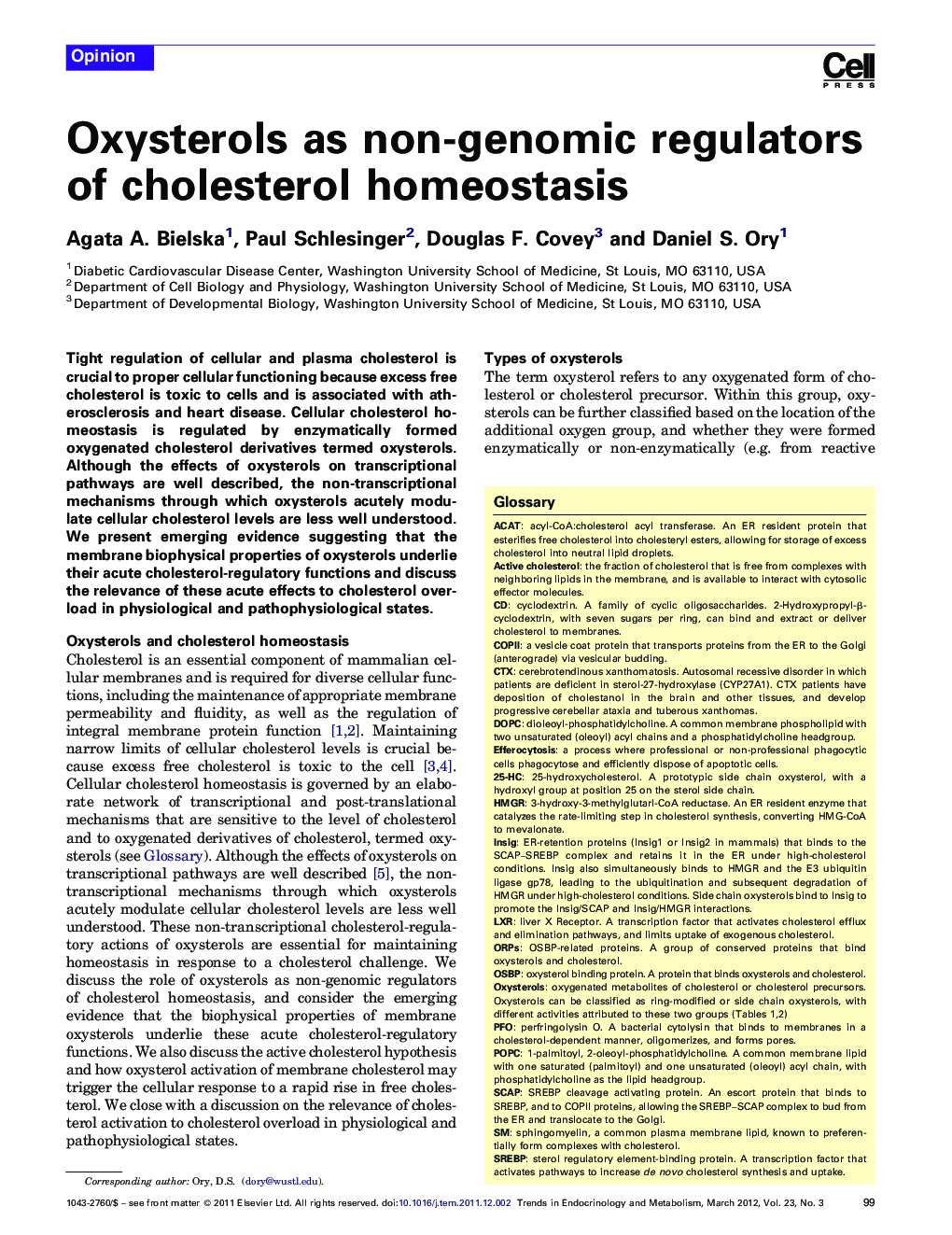| Article ID | Journal | Published Year | Pages | File Type |
|---|---|---|---|---|
| 2810907 | Trends in Endocrinology & Metabolism | 2012 | 8 Pages |
Tight regulation of cellular and plasma cholesterol is crucial to proper cellular functioning because excess free cholesterol is toxic to cells and is associated with atherosclerosis and heart disease. Cellular cholesterol homeostasis is regulated by enzymatically formed oxygenated cholesterol derivatives termed oxysterols. Although the effects of oxysterols on transcriptional pathways are well described, the non-transcriptional mechanisms through which oxysterols acutely modulate cellular cholesterol levels are less well understood. We present emerging evidence suggesting that the membrane biophysical properties of oxysterols underlie their acute cholesterol-regulatory functions and discuss the relevance of these acute effects to cholesterol overload in physiological and pathophysiological states.
